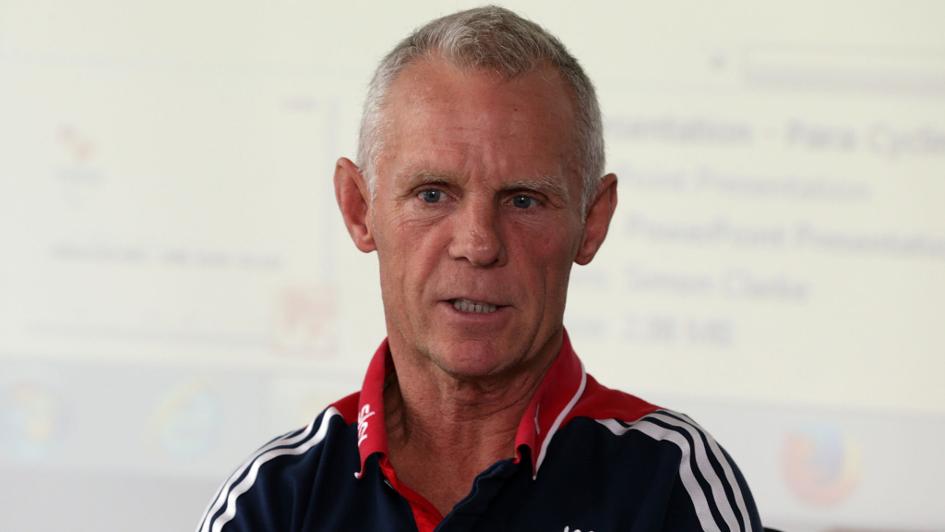
Report into 'culture of fear' claims at British Cycling to be published on Wednesday
The report into claims of a "culture of fear" within the Great Britain cycling team will be published on Wednesday, with speculation mounting as to how much the final document has changed from December's draft.
Drawn up by a five-strong independent panel led by British Rowing chair Annamarie Phelps, that version was damning about British Cycling's handling of allegations of bullying and discrimination.
Largely directed at ex-technical director Shane Sutton, the claims were initially made by former GB track sprinter Jess Varnish in April 2016 and then followed up by Olympic stars Nicole Cooke and Victoria Pendleton and Paralympic champion Darren Kenny.
The Manchester-based governing body asked board member Alex Russell to conduct its own investigation into Varnish's complaint, while co-commissioning, with funding agency UK Sport, Phelps and her panel to look at the "culture and climate" of the elite set-up.
Russell reported her findings to the board in October and it ruled in Varnish's favour, saying there was evidence Sutton had used "inappropriate and discriminatory language".
But, six weeks later, a letter from Bob Howden, the sport's then chairman and current president, was leaked, revealing that Sutton was only found guilty of one of nine charges - the relatively minor complaint he had referred to some riders as "bitches".
This verdict left both Sutton, who has denied wrongdoing, and Varnish annoyed, with the latter threatening legal action.
Russell's report was shared with the independent panel and, when it came to write its preliminary report just before Christmas, the verdict was explosive, although its impact was not completely clear until it was leaked to the Daily Mail in March.
The draft accused British Cycling's board of "reversing" and "sanitising" Russell's findings, and criticised the board's "dysfunctional leadership".
It also said Sutton was unsuited to the top coaching role and claimed the only logical rationale for sacking Varnish was an "act of retribution", as she had publicly criticised coaches following her failure to qualify for the Rio Games in March.
Freedom of Information Act requests by Press Association Sport have already revealed the panic this caused at British Cycling and UK Sport, as the latter was also criticised for its lack of oversight, and a debate ensued as to how much of the report should be made public.
It was eventually decided that more of it should be published than first planned - in order to avoid accusations of a whitewash - so Phelps' panel was asked to conduct a process known as Maxwellisation. This gives those criticised the right to reply, providing legal cover for the panel and those who contributed to its findings.
That process and then the shutdown of government-related business during the election campaign has seen the independent review stretch beyond a year to almost 14 months. But now an end is in sight, although for some it could just be the start of a new chapter.
Sutton has told Press Association Sport he has "moved on" but understands the draft report's criticism of the board has been "watered down" in the final version, which is certainly what British Cycling hopes.
The governing body has made huge changes in terms of codes of conduct, decision-making and key staff over the last six months and is eager to puts this saga behind it, especially as public funding from Sport England and UK Sport has been threatened by this crisis and the concurrent UK Anti-Doping investigation into allegations of historic wrongdoing.
While acknowledging mistakes were made, it is understood to have been particularly upset about the ferocity of the draft's language and what it feels was a fundamental misunderstanding about the Russell investigation.
A source has told Press Association Sport that Russell was asked to gather facts and present them to the board for it to make a collective ruling. The source said the board feels the most significant issue is that Varnish's complaint was upheld.
But her camp has said this ignores several important factors, most notably that they believe Russell found evidence to uphold eight of the nine charges, there was no vote on the matter nor an explanation of how the decision was reached, and British Cycling has still failed to produce performance data to justify dropping Varnish.
Several other key players will also be eager to read Phelps' completed investigation - not least former British Cycling performance director and current Team Sky boss Sir Dave Brailsford, who was also criticised in the draft - and the governing body's former president Brian Cookson, who now runs the International Cycling Union.
Press Association Sport revealed in March that Cookson was interviewed by the panel two months after the deadline for contributions, as he was upset by the draft's assessment of an organisation he ran from 1997 to 2013.
But there is another significant issue at stake and that is the credibility of Phelps' panel as an independent body. Too many changes and it will look like they either got this horribly wrong first time around or they have been persuaded to pull their punches.
Anybody who knows Phelps well believes neither is likely, which may disappoint those hoping for a major rewrite and explain why she is still willing to present this report as her panel's final assessment.
MOST READ
Next Off
Fixtures & Results



















